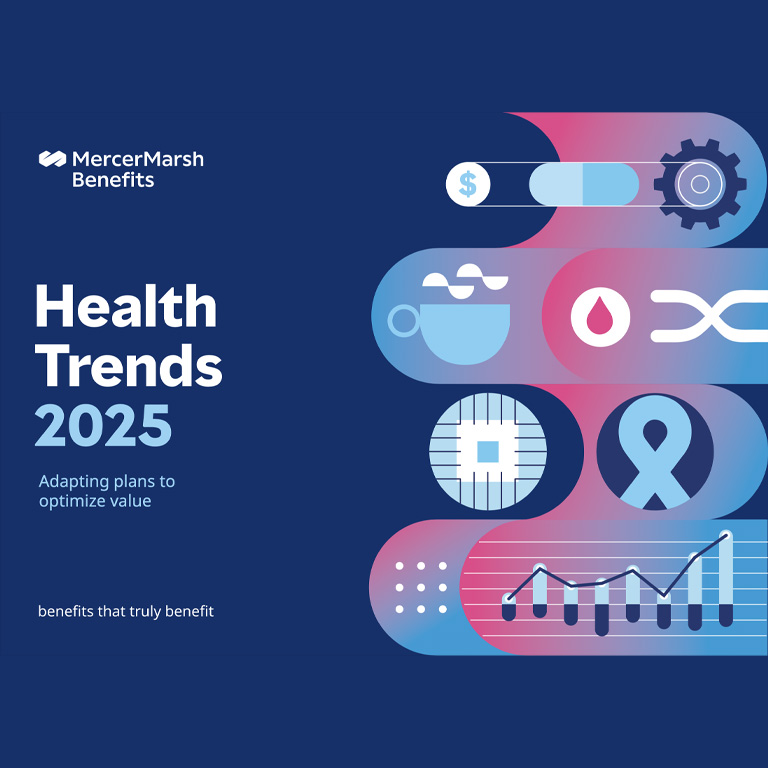
Joan Collar
Asia and Pacific Leader, Mercer Marsh Benefits
Employers are increasingly expected to have DEI-related policies and to actively tackle inequity in the workplace, through pay, benefits, health provisions and other channels. These expectations are not only coming from employees but also from a wide range of other stakeholders, including regulators, investors, customers, suppliers and the media.
Firms that get this right will benefit from staff who have a diversity of thought. The firms will also enhance their reputations and gain an advantage in the growing war for talent. Those that fail to promote social well-being will see their reputations diminished.
The COVID-19 pandemic highlighted inequity in healthcare access, experience and outcomes for different groups. For instance, death rates from infection were far higher among people of color. Consequently, from 2019 to 2020, Black Americans saw an overall decrease in life expectancy of 2.9 years, as compared to 1.2 years for white Americans.[1]
While these figures come from the US, this is a global problem, with research highlighting the damage that inequity causes in every country of the world. Globally, inequity has been exacerbated by the pandemic: A study from the Brookings Institution[2] found that on average, across 52 countries, more than one-third of those working before COVID-19 stopped working due to the pandemic, while, across 30 countries, more than 60% of households reported income losses.
Race or ethnicity, gender identity, sexual orientation, age, disability, socio-economic status and geographic location all contribute to an individual’s ability to enjoy good health. As payers for care, businesses have a moral imperative to tackle biases in the system, and to ensure that their health and benefits provisions meet the needs of the entire workforce.
We’ve seen US-based insurers dedicate significant resources to this effort. We are also pleased to report that insurers outside the US are taking steps to facilitate the design of more inclusive medical plans, and that they are defining their strategic priorities with equity in mind.
For instance, our Mercer Marsh Benefits Health Trends Report found that a third (30%) of insurers have made changes to ensure there is diversity among the medical providers within their networks. This will have an impact on the employee experience, as it will easier for individuals to see a doctor who shares their ethnic background and gender.
Over a quarter (27%) of insurers have changed their eligibility access processes to make coverage more inclusive for LGBTQ+ employees. They have done this by introducing measures such as allowing partners of the same gender to be named on medical plans.
Since the start of the COVID-19 pandemic, hybrid working has grown in popularity. This means that employers are now thinking about how to give both virtual and on-site workers similar access to healthcare. It will be particularly interesting to watch this trend developing in places where on-site clinics have been important providers of care (in countries such as Indonesia, the Philippines and Mexico).
Almost a quarter (24%) of employers are considering how to incorporate better social support mechanisms into their employee offerings (or have already done so). Improvements are focusing on top employee challenges such as transportation, food and housing. This is encouraging — particularly since there is a strong connection between health and well-being and the availability of good social supports.
While these changes are a step in the right direction, firms should recognize that insurers have to be pragmatic and focus on things that are within their control.
Global insurers are facing increasing demands that they should have a better understanding of predicted claim trends. This helps explain why data analytics is a top strategic priority for a third (34%) of these companies.
Many global insurers are increasingly recognizing that having vast networks of medical professionals is less important than ensuring good healthcare outcomes. The better management of healthcare providers is therefore the top priority for one in five (21%) insurers.
Promoting high-quality health measures is the top priority for a fifth of insurers (20%). Such promotion includes encouraging people to use facilities that specialize in treating their condition, rather than using a local doctor. This type of action improves both the quality of care and its outcomes.
Unfortunately, even though mental health was flagged by insurers as the second-biggest risk to employee health, just 3% of insurers see mental health provision as a key priority. Many employers will therefore have to advance their corporate mental health and well-being agendas independently of their insurance providers.
Employers have an opportunity to support a diverse, equitable and inclusive workforce by recognizing that employees have different needs and values, and that appropriate, high-quality healthcare must be accessible and affordable to all.
Firms that want to differentiate themselves as a best-in-class sustainable employer should put a multi-year plan in place to offer meaningful benefits to disadvantaged populations.
Employers can:
[1] MarshMcLennan/Brink. “What Can Employers Do to Impact Black-White Health Disparities?” Available at https://www.brinknews.com/what-can-employers-do-to-impact-black-white-health-disparities/
[2] Brookings. “The risks of an uneven economic recovery in an unequal world.” Available at https://www.brookings.edu/blog/future-development/2021/09/27/the-risks-of-an-uneven-economic-recovery-in-an-unequal-world/

Asia and Pacific Leader, Mercer Marsh Benefits

Health and Well-being Innovations, MMB Multinational
United States

Report
06/01/2025